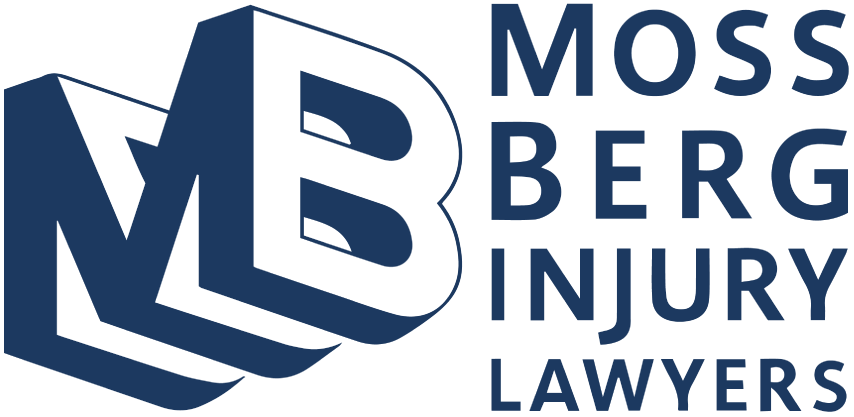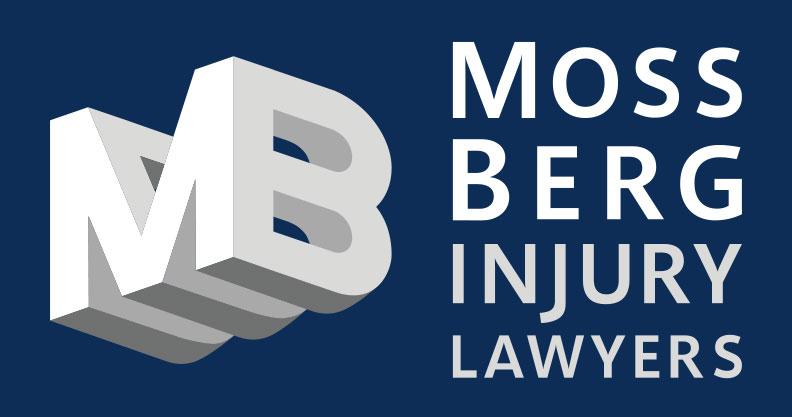by tfarino
Share
Share
Technology companies developing self-driving cars, also known as autonomous vehicles, tout their potential for eliminating human error from the traffic equation. Although self-driving vehicles may ultimately outperform human drivers, accidents cannot be realistically eliminated. A vehicle without a driver, however, will change the legal landscape for injury victims. The resulting insurance claim may look more like a product liability case against a big company instead of one of operator negligence. In such cases, victims may need the help of car accident lawyers Las Vegas more than ever.
Human Operators Are Currently Liable
Despite the hype about self-driving cars, no vehicles on the consumer market are currently truly autonomous. Some have autonomous-driving features, but they are only meant to be used in the presence of an attentive driver. The autopilot feature on Tesla vehicles presents an example of a car that can drive itself but only under limited circumstances.
Tesla states clearly that autopilot mode does not eliminate the need for a driver. According to a statement from Tesla about a 2016 crash that killed a driver who was using a Tesla with the autopilot engaged, the feature “does not allow the driver to abdicate responsibility.”
The driver requirement fits into the existing legal status quo that has developed around determining fault in traffic accidents. As a fault state, Nevada law connects financial liability for car accidents to who caused the crash. From a legal standpoint, drivers are responsible for their errors that hurt others or damage property. Vehicle malfunctions that cause a driver to crash shift liability to a manufacturer. In the case of an autonomous vehicle feature that fails, the software company could be to blame.
Although current personal injury law appears adaptable to cars with autonomous features, this does not make assigning blame for a crash easy. A car accident attorney Las Vegas must sometimes contend with cases where the details are not entirely clear. Thorough investigations and expert witnesses are needed at times to identify the responsible party.
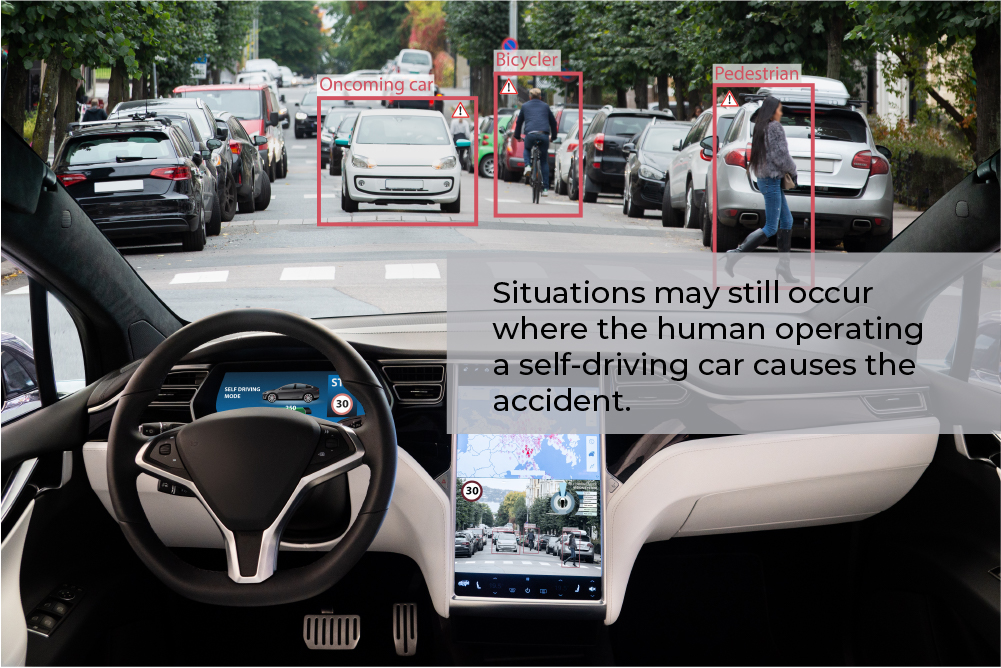
What Liability Might Look Like With Self-Driving Cars
If the future of self-driving cars envisioned by technology companies and automakers comes to pass, car accidents will have to be evaluated from multiple angles.
Human Operator
Situations may still occur where the human operating a self-driving car causes the accident. Even if the vehicle was driving itself, operator actions could still influence the outcome.
Automaker or Parts Manufacturer
Just like today, defective parts create liability for the companies that build or install them. For this reason, vehicle hardware may come under increasing scrutiny in self-driving car accidents. An investigation led by a car accident attorney Las Vegas is often needed to uncover evidence about mechanical defects.
Technology Company
Software developers have a huge role in self-driving cars. Their products power the entire decision-making process within the computer navigating the roadway and interpreting incoming data about traffic, road conditions, and other obstacles. Due to the mental load that driving places on the human brain and the unexpected events that can confront any driver at any moment, software will have to be very advanced to deal effectively with all traffic issues. Injury lawyers anticipate that faulty software will be an issue with many self-driving car accident claims.
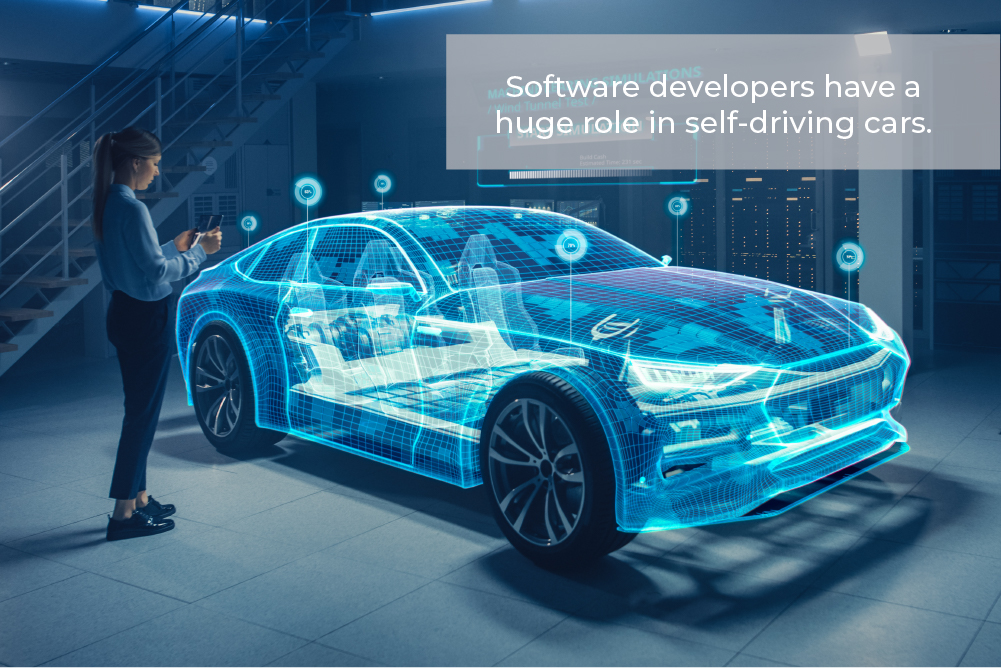
Differences Between Tech Companies and Automakers
As any car accident lawyer will tell you, an injury claim that appears to involve two responsible parties will probably result in those parties trying to blame each other. With self-driving cars, technology companies and automakers will play hot potato with the blame whenever an opportunity presents itself. For example, a technology company might argue that its software was not in error because the hardware sensors installed by the automaker failed in some way. A car accident lawyer Las Vegas representing an accident victim in that situation may have to work hard to pin down whether one or both of the companies bear responsibility for paying damages.
How automakers and technology companies have interacted with people in legal cases until now has varied. For decades, automakers have existed under the legal framework of product liability. Manufacturing defects create liability for automakers, and victims seek compensation through insurance claims or lawsuits.
Technology companies, on the other hand, have a history of forcing issues into arbitration, which tends to favor the corporation over an individual person with a grievance. In the case of a self-driving car accident attributed to faulty software, the grievance would be injuries.
Any future laws about self-driving car accident liability could be influenced by technology companies trying to create loopholes to avoid litigation.
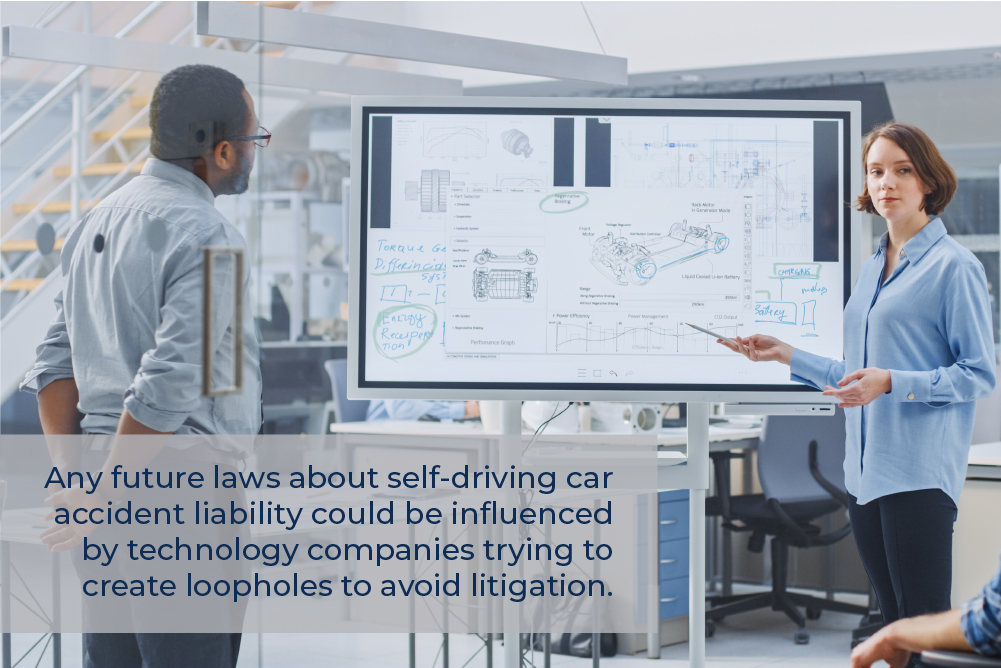
Experimenting on Public Roads
At present, autonomous vehicles are experimental, but some of those driving experiments are happening on public roads. The development of the technology requires testing in real-world conditions, but it also raises legal questions about public safety. In neighboring Arizona, the state government has created a legal framework that has allowed for the testing of self-driving vehicles.
An autonomous vehicle test run by Uber resulted in the death of a 48-year-old pedestrian during a night drive in Tempe. An investigation by local police concluded that the pedestrian appeared to be to blame for the accident because she had stepped in front of the vehicle from the shadows.
Going forward, more injuries and deaths could occur as more states or municipalities permit self-driving car tests on public roads. This scenario potentially exposes governments to liability. Legal arguments made by injury lawyers would hinge upon whether a government made a negligent decision in allowing experimental vehicles on public roads.
Additionally, public roads simply lack the infrastructure to support autonomous vehicle traffic. If self-driving cars become widespread, safety might rely on the installation of extra sensors and signals at intersections meant to communicate with self-driving vehicles about pedestrians.
Legal Advice Aids Car Accident Victims
Although self-driving cars are intended to improve upon human weaknesses and increase traffic safety, many technological and infrastructure hurdles remain to be overcome before their mainstream adoption. When that happens, car accident cases will become more complicated and are likely to pit victims against one or more corporate parties.
As things are today, injury lawyers Vegas already help victims navigate an insurance system focused on limiting settlements for injury expenses. The guidance of a knowledgeable car accident lawyer is often vital for recovering adequate compensation after someone suffers significant injuries.
If you are struggling financially because of a negligent driver, a free consultation at Moss Berg Injury Lawyers can help you know what to do next. Contact us today.
Tips & Guide For Suing For Defective Products – Lawyer In Las Vegas Nv
When you buy a product, the least you can expect is that it works. Unfortunately, items occasionally malfunction. When this occurs, you might get injured. If you believe the product manufacturer should be held liable
Brake Checking Accidents: Who Is Liable In Nevada?
You’re on a Nevada highway, following the car ahead at a safe distance. Suddenly, the driver in front hits the brakes for no clear reason. You swerve and avoid a crash, feeling shocked. This is
